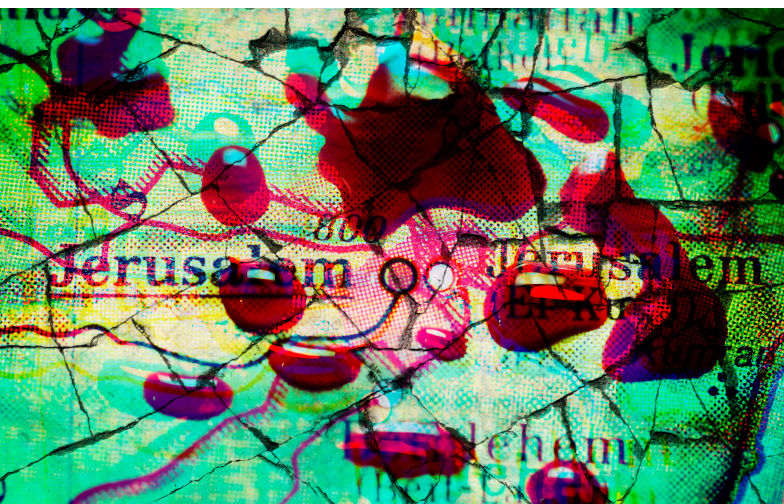In 1997, the World Health Organisation invited me to be a short-term consultant to visit Iran and advise on HIV control among people who inject drugs and the spread from them to the large low-risk general population. At the time, HIV was spreading rapidly in Iran. I felt honoured to be invited to a country with such an ancient past.
Months before, Iran’s Immigration authorities had sent me visa forms which among the usual questions also asked about my religion. I answered truthfully that I am Jewish although I was and remain, in Tom Lehrer’s classification, only a “delicatessen” rather than a synagogue Jew. I have never been confused about my identity.
My answer delayed my arrival in Iran. I had to appeal to a regional WHO head office to sort this out and when I eventually arrived in Iran it was for a slightly truncated itinerary. There the word had got around that I was Jewish. Some Iranians asked me why a Jew would want to slow the spread of HIV among Muslims. I replied that in my view a Muslim life is every bit as valuable as a Christian, Jewish, Buddhist, Hindu or atheist life. Some asked me what I thought of the conflict in the Middle East. I replied that I thought one side had behaved very badly while the other side had behaved even worse and I was confused about which side was which – a position I still hold. This reply was often followed by an uncomfortable silence.
The Iranian authorities had assigned a surgeon to act as my minder during my visit. I asked him why he thought the authorities in his country had been wary about my consultancy. “Because they thought you might be from Mossad,” he said. “But if I was from Mossad would I have declared that I am Jewish on my visa form?” I replied.
In 1982, I had visited Israel with my family. I decided on that visit I could never go back under the circumstances I found Israel in. I still vividly remember visiting the Museum of the Diaspora just outside Tel Aviv. A mural covered a large internal wall depicting the history of world Jewry. I took great pride in the figures of Jews printing anti regime samizdat newsletters in the Soviet Union, South African Jews blowing up radio transmitters to help fight apartheid and American Jews protesting against the Vietnam war.
In my long career in public health involving illicit drugs, human rights and social justice have often been major considerations. Much of my work has been in HIV control among, and from, people who inject drugs including in a number of Muslim-majority countries, and sometimes in quite dangerous circumstances, as in countries like Afghanistan and Pakistan. I even applied, unfortunately unsuccessfully, for a position to establish a methadone clinic in Ramallah.
When invited recently to support an advertisement critical of President Trump’s — in my view — contemptible comments about developing Gaza as a real estate opportunity, I accepted immediately. The advertisement was published in the Sydney Morning Herald and The Age on Tuesday 25 February. The text read “Australian Jews must reject Trump‘s call for the removal of Palestinians from Gaza. Jewish Australians say ‘No’ to Ethnic Cleansing!”
The invasion of Israel by Hamas on 7 October 2023 was, in my view, undeniably and indefensibly cruel. Buddhists say that everything has a cause and everything has an effect. There are no shortage of potential causes of the 7 October invasion. The effect of this invasion was the Israeli military response, initially in Gaza, later in neighbouring countries, A response which Israel claims, in my view astonishingly, to have been proportionate.
The Israel-Palestine conflict involves decades of pain and suffering on both sides. There is little room for hope or optimism to cling to, but there is some. Both the Northern Ireland and South African violent conflicts continued for several decades and seemed intractable. Yet both were resolved a generation ago and have remained peaceful for more than two decades.
The world also has the framework developed at the end of WWII which recognises national sovereignty, peaceful resolution of conflicts and human rights – though this framework has been steadily undermined by many countries in recent decades.
The issue for me is our universality. As Shylock reminded us so powerfully in The Merchant of Venice: “If you prick us, do we not bleed? If you tickle us, do we not laugh? If you poison us, do we not die? And if you wrong us, shall we not revenge?”
The views expressed are solely those of the author and may or may not reflect those of Pearls and Irritations.
Dr Alex Wodak, AM, is a physician and has been a Director of the Alcohol and Drug Service at Sydney’s St Vincent’s Hospital, President of the Australia Drug Law Reform Foundation, Board Member of Australia21 & the Australian Tobacco Harm Reduction Association.
Emeritus Consultant, st Vincent’s Hospital, Darlinghurst, NSW, 2010 Tobacco Harm Reduction Adviser to the Harm Reduction Australia Board.

